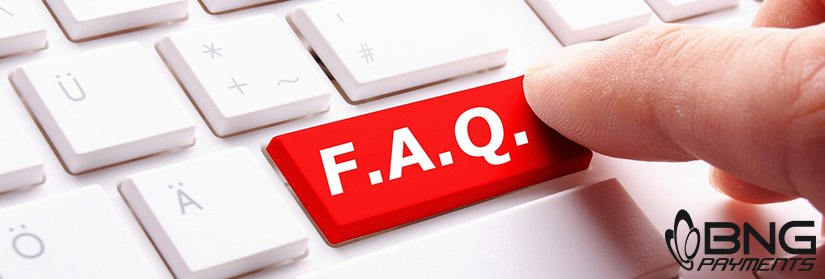
Credit card processing is a complicated and confusing process. It can be hard to know where to start or what the best solution is for your business. This blog post will give you an overview of credit cards, how they work and are processed so that you can make an informed decision on what to use for your company's financial needs.
A credit card processor is a company that provides the hardware and software necessary to process payments with a credit card. Credit cards are essentially small, thin pieces of plastic (or metal in some cases) that have magnetic strips encoded on them. When you make a purchase with your credit card in a store, electronic communication is transmitted from the card to the merchant's terminal (the device that you swipe your credit card through). After that, it is returned to the processor.
There are a few different reasons to use credit card processing services. The first is that it allows people who do not have checking accounts, or maybe don't want to use them, to pay you with their money instead of using cash or checks. This makes accepting payments much easier for your business and can let you reach more potential customers. Additionally, credit cards offer a level of consumer protection that cash and checks don't have. If you accept a check from a customer and they bounce it later on down the line, then your business is out whatever money you gave them for their services or goods.
To process payments with a credit card, there are specific hardware requirements. In most cases, you will need at least two pieces of equipment: a terminal and an internet connection. The terminal is where the transaction occurs; it connects to the processor through either wifi or cellular data (which must be paid for by your business). It processes all of the transactions that take place within its range.
Many online processors offer credit card processing services. While most of them will provide you with very similar hardware and software options, there are some things to consider when choosing the right processor for your business needs. One primary consideration is which mobile payment apps they support. There are a lot of great mobile wallet systems out there like Android Pay, Apple Pay, and Samsung Pay that are becoming more popular every day. Most credit cards often support these systems, so if you want to accept them as a form of payment, it's important to choose a processor who supports them.
Another factor to think about is the prices they charge for their services. You should expect a distinction between their standard rates and those offered to larger companies like yours. It's critical that you're comfortable with the services and hardware that your processor provides, so take some time out of your day to compare them all before deciding which one is best for you.
There are a few different processors that you can choose from depending on what your business needs.
Standard Merchant Account: This type of processor allows businesses to accept credit cards as payment and have them processed right away. Usually, this happens overnight, so merchants don't even need to worry about their transactions until the next day when they receive a statement in the mail.
Point-Of-Sale (POS): This is similar to your standard merchant account, but it's designed specifically for retail businesses and allows merchants to accept credit card payments directly at their business location through an iPad or other tablet device.
These systems are beneficial for small businesses that don't need to accept payments anywhere outside their business location.
Mobile Point-of-Sale (mPOS) solutions: Square's newest entry into the mobile point of sale space with its new product called "Square Register," which replaces the credit card reader with an iPad. And while Square is the latest entrant into this space, it's worth mentioning that there are many other players in this area, including Intuit (maker of QuickBooks) and Vend, who offer their solutions for small businesses.
Each of these processors has its advantages and disadvantages that should be considered when choosing the right one for your business. The important thing to keep in mind is that you need a processor who can support all of the hardware, software, and apps that will help make your life easier as an entrepreneur. It's also worth mentioning that it's a good idea to find one who offers 24/365 support and is available via phone or chat during business hours.
This will make sure that you have the help you need whenever you might need it most! You never know when something might go wrong with your equipment, app, or software, so having access to knowledgeable customer service reps can be extremely helpful in such situations.
Another thing to consider is how easy their website is going to be for navigating.
For many businesses, this payment method has become second nature. However, some people out there still don't use credit cards regularly and would prefer an alternate form of payment like cash or check instead. These options may not always be available through certain types of processors, so it's important to consider all of your options before deciding on one.
The best thing you can do for yourself and your business is to take the time out of your day to shop around. Just because a credit card processor offers their services at an extremely low price doesn't necessarily mean that they provide quality service. Some processors who charge a high fee may be worth considering due to the superior equipment and support. So don't jump into things too quickly without doing some research first- find the right fit for you by calling them or sending in an application today. This way, you'll get exactly what you need from your provider, which will make running your business much easier over time.
